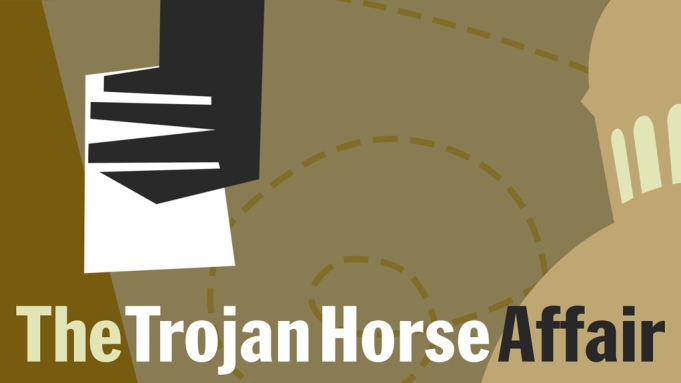28 Jan 2011
Wednesday January 27 the Swedish riksdag (parliament) held a debate about violent extremism, initiated by the far-right populist Sweden democrats (SD). SD leader Jimmie Åkesson started the debate off with a reference to the Stockholm suicide bombing in December 2010. He argued that the attack wasn’t an isolated event, pointing to the Swedes suspected of planning a terror attack on a Danish newspaper, as well as two Swedes of Somali descent who have been convicted of planning terror crimes. According to Åkesson, the debate in Sweden about Islamic extremism has been muffled, and because of political correctness there is no room to criticize Islam.
While Åkesson wanted to solely discuss Islamic extremism, ministers from the rest of the parties wanted to take this as an opportunity to discuss all sorts of extremist violence in Sweden, not just Islamic. For instance the case of a man who shot at a great number of individuals of foreign origin in Malmö in 2010, leaving many severely injured and in at least one case dead. Åkesson was annoyed by this comparison, and meant this had nothing to do with terrorism.
Minister of Justice Beatrice Ask countered by warning that one shouldn’t draw too many conclusions from the Stockholm suicide bombing. “Sweden is an open society where people can have different backgrounds and religious convictions and live side by side,” she said. “There are people who refuse to accept the foundations of our society and who are ready to hurt others to have their way,” she continues. The government is currently reviewing its strategy for how best to prevent extremism from taking root in Sweden, the minister said.
At the debate, as well as in an op-ed published the day before, Åkesson called for a national action plan for fighting terrorism, arguing for laws that prohibit people from traveling abroad to participate in terrorist training camps. He also called for a closer examination of young muslims’ attitudes toward Islamism, saying that Islamism as such must be surveyed and combated.
In response to this Ask said that Sweden already has a national action plan and, in addition to that, co-operates with the EU in anti-terror operations. Then the Green Party’s Maria Ferm warned against increased right of surveillance.”If we give up a little of our freedom for a little more security, we risk losing both,” she said. She also held Åkesson responsible for collectively blaming Sweden’s Muslim population for the atrocity of one man. She cited statistics holding that only 0.34 percent of European terror attacks are carried out by Islamic extremists, while the greater numbers are the deeds of left-wing and right-wing extremists.
Sven-Erik Österberg, head of the Social Democrats’ parliamentary group, said the problem with “Muslim extremism” should not be overstated, but not ignored either. He said the Social Democrats want to co-operate with Muslims on this matter. But he also stated that those who take up the fight against extremism need our support against all forms of extremism”.
Johan Pehrsson of the Liberal Party (Folkpartiet) called for more resources and better measures for helping young people who want to leave extremist groups. Lena Olsson from the Left Party (Vänsterpartiet) criticized Åkesson and the Sweden Democrats’ approach to the debate. “Listening to the Sweden Democrats and their xenophobic solutions is like listening to a guitar with only one string,” she said.
Most commentators concluded after the debate that the Sweden Democrats lost, that they forced open doors and that the established political parties kept together, across party lines, against the Sweden Democrats wanting to make it an anti-Muslim event, rather than an open debate on violent extremism.
Interview with Jimmie Åkesson on BBC Hard Talk:
http://news.bbc.co.uk/2/hi/programmes/hardtalk/9372832.stm






